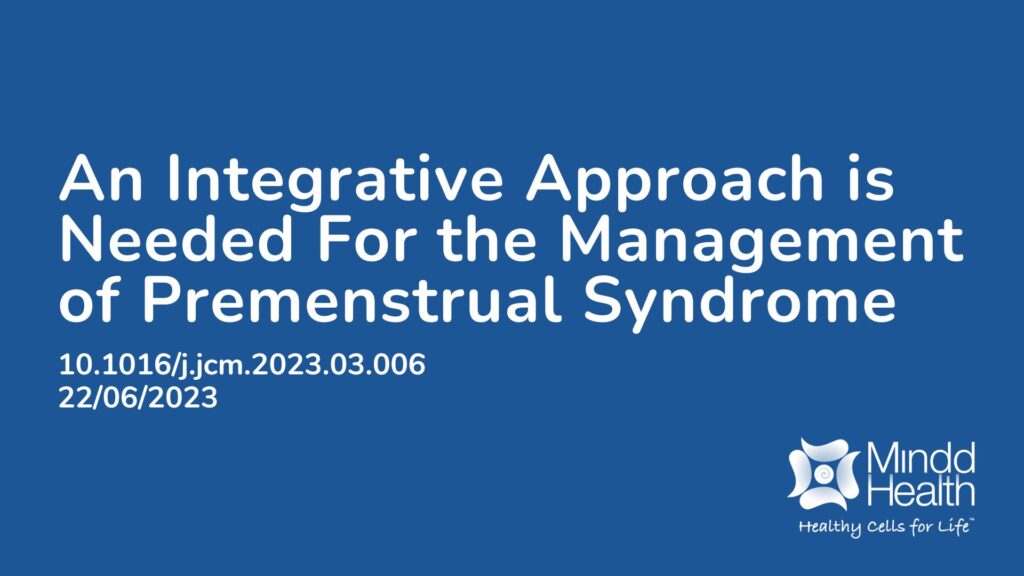Summary:
Premenstrual syndrome (PMS) involves recurring physical and emotional symptoms during the luteal phase of the menstrual cycle, affecting up to 95% of women of reproductive age. About 20% experience symptoms severe enough to impact daily life. Hormonal fluctuations, particularly involving progesterone and neurotransmitters like serotonin and GABA are thought to play a key role. Stress, inflammation, and metabolic issues may also contribute. Common treatments include hormonal contraceptives and SSRIs, but both can cause side effects and aren’t always effective. Some women turn to alternative therapies such as acupuncture, magnesium, turmeric, flaxseed oil, coenzyme Q10, and B vitamins. In this case study, a 36-year-old woman with long-term PMS saw major symptom relief after a three-month regimen combining traditional Chinese acupuncture, supplements, and mindfulness meditation. Her symptom score dropped from 50 to 18 and remained low for 32 weeks. This suggests a multimodal, non-pharmaceutical approach may offer effective symptom management.
Abstract:
Objective: The purpose of this case report was to describe a multimodal approach for the treatment of premenstrual syndrome (PMS). Clinical features: A 36-year-old nulliparous woman presented to a free clinic for veterans and their spouses. She received a PMS diagnosis at age 18. She was previously prescribed hormonal birth control and nonsteroidal anti-inflammatory drugs, which minimally affected her condition. She stopped using conventional medicine therapies at age 27. Laboratory results showed that her progesterone was below 0.5 ng/mL. Her symptom score was 50 out of 60 on the Treatment Strategies for PMS assessment tool. During her menses, she experienced low back pain and stiffness, bloating, swelling, weight gain, breast tenderness, swelling, and pain, and she felt overwhelmed and stressed. Intervention and outcome: Traditional Chinese medicine acupuncture was administered in conjunction with 100 mg of coenzyme Q10 (ubiquinol) and a B-100 complex once a day and 400 mg of magnesium citrate, 1000 mg of flaxseed oil (Linum usitatissimum), and 1000 mg of turmeric (Curcuma longa) twice a day. Five days before the onset of her menstrual period, she was to ingest a B-100 complex twice a day and 400 mg of magnesium citrate, 1000 mg of flaxseed oil, and 1000 mg of turmeric 3 times a day. Mindfulness meditation was encouraged twice a day for 10 minutes to reduce stress. After 12 treatments over 3 months, her symptom score decreased to 18 out of 60 and remained below 20 for an additional 32 weeks. Conclusion: This patient with PMS symptoms positively responded to a multimodal approach using traditional Chinese medicine-style acupuncture, dietary supplements, and mindfulness meditation.
Article Publication Date: 22/06/2023
DOI: 10.1016/j.jcm.2023.03.006



